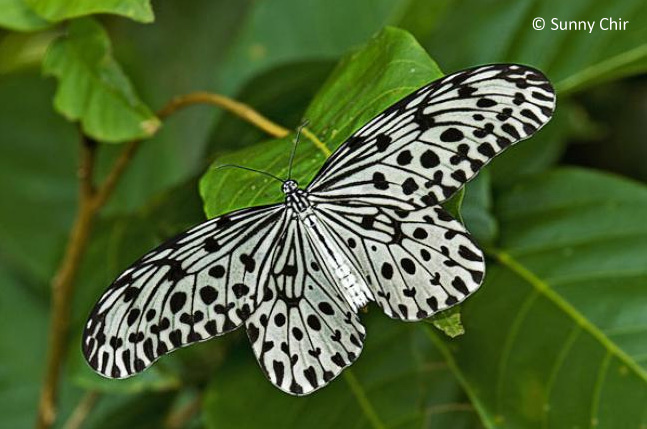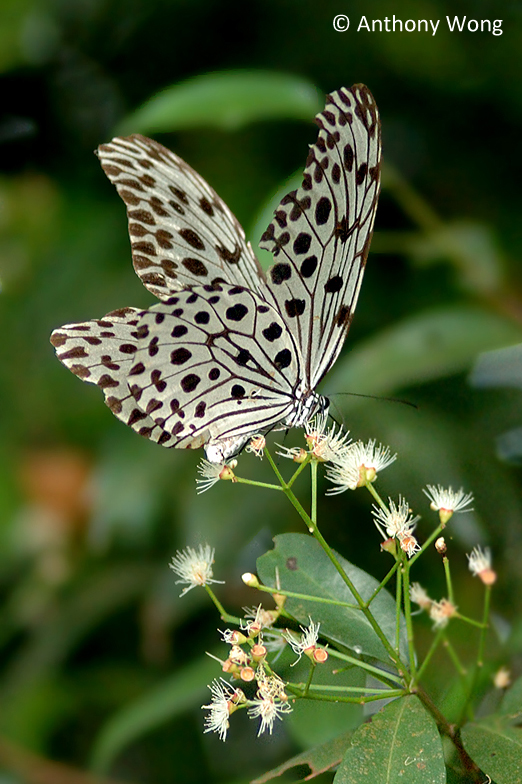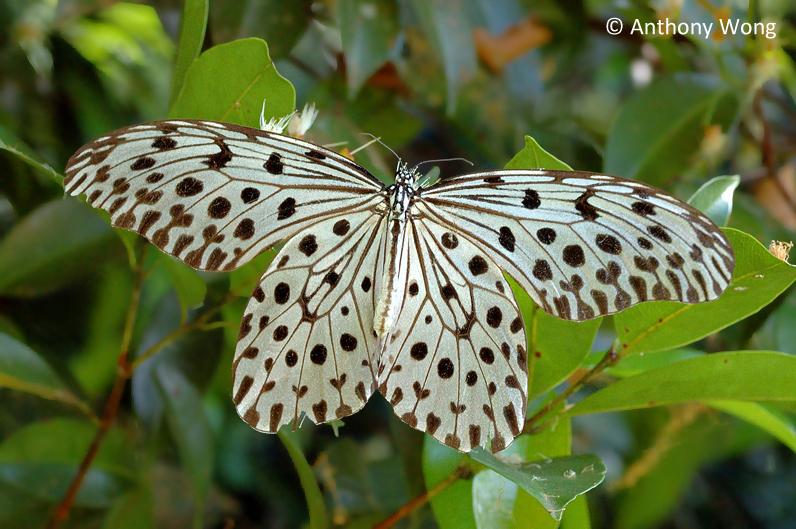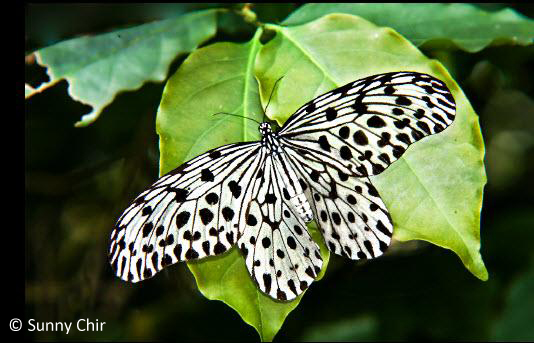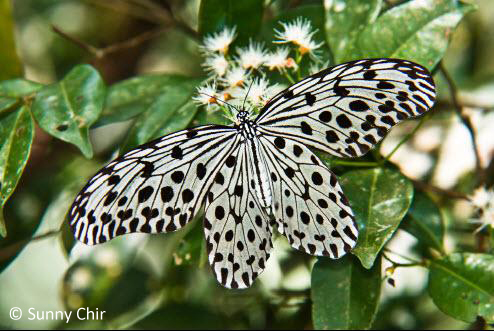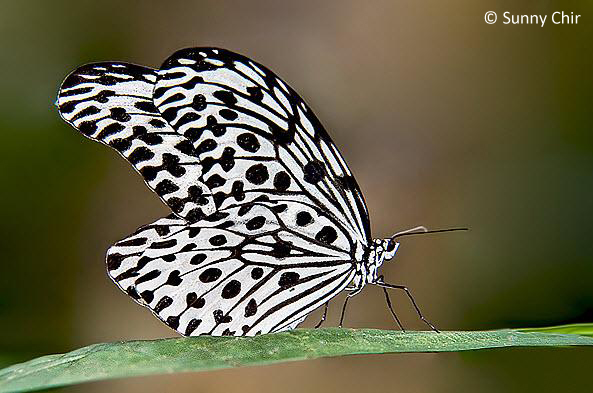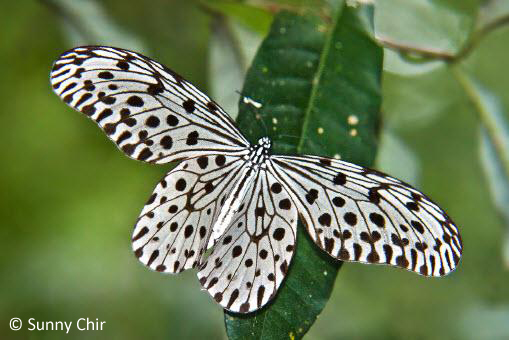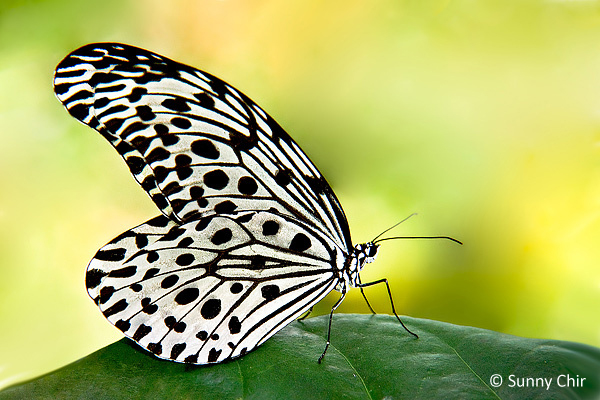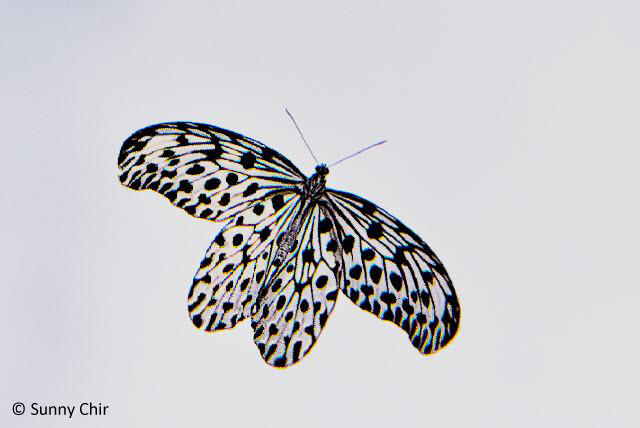Idea stolli logani
Common Tree Nymph
| Family: | Nymphalidae |
| Subfamily: | Danainae |
| Genus | Idea |
| Species: | stolli |
| Subspecies: | logani |
| Common Name: | Common Tree Nymph |
| Wingspan: | 140-160 mm |
| Life History: | incomplete |
| Extant in countries: | •Singapore |
Description
The Tree Nymph is always a show-stealer whenever it makes its appearance during butterfly watching walks in Singapore. It never fails to draw delighted ooohhhs and aahhhs from the observers as it floats effortlessly amongst the treetops in the nature reserves, as though at the mercy of the breezes.
Habitat & Habits
Several individuals can sometimes be spotted, frolicking amongst the treetops. Occasionally, a number of them can be found around a flowering tree, particularly of the Eugenia species. The males can be distinguished by its sharper forewings and smaller size and they also extrude a pair of yellow hair pencils from the abdomen when handled.
Other Observations
There are four species of the genus Idea in Malaysia - I. stolli, I. lynceus, I. hypermnestra and the extremely rare I. leuconoe. In Singapore, I. stolli logani (and recently, I. leuconoe) have been observed.
The butterfly is pale whitish grey with black spots with the veins black dusted. Amongst the four species, I. stolli logani is the smallest, with an average wingspan of 180 mm.
Early Stages
To be detailed.
Further Reading
Butterfly of the Month - October 2008

